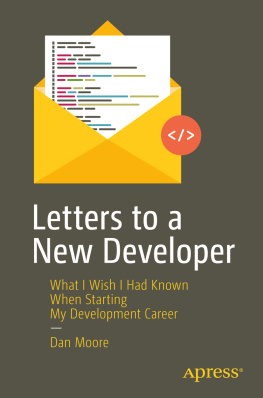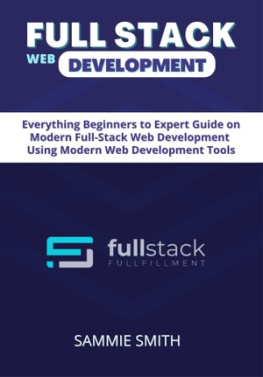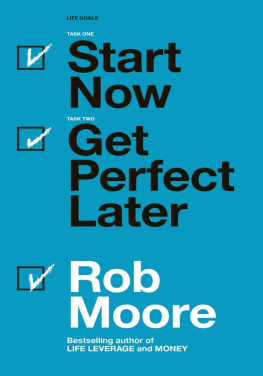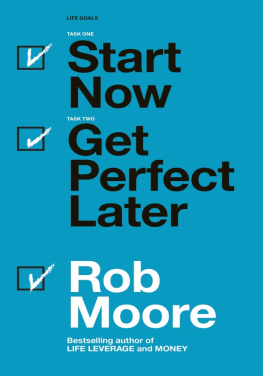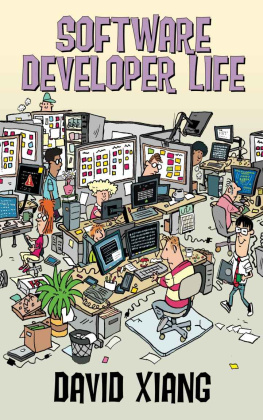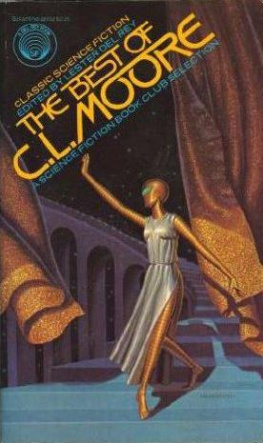Dan Moore - Letters to a New Developer: What I Wish I Had Known When Starting My Development Career
Here you can read online Dan Moore - Letters to a New Developer: What I Wish I Had Known When Starting My Development Career full text of the book (entire story) in english for free. Download pdf and epub, get meaning, cover and reviews about this ebook. year: 2020, publisher: Apress, genre: Business. Description of the work, (preface) as well as reviews are available. Best literature library LitArk.com created for fans of good reading and offers a wide selection of genres:
Romance novel
Science fiction
Adventure
Detective
Science
History
Home and family
Prose
Art
Politics
Computer
Non-fiction
Religion
Business
Children
Humor
Choose a favorite category and find really read worthwhile books. Enjoy immersion in the world of imagination, feel the emotions of the characters or learn something new for yourself, make an fascinating discovery.
Letters to a New Developer: What I Wish I Had Known When Starting My Development Career: summary, description and annotation
We offer to read an annotation, description, summary or preface (depends on what the author of the book "Letters to a New Developer: What I Wish I Had Known When Starting My Development Career" wrote himself). If you haven't found the necessary information about the book — write in the comments, we will try to find it.
Dan Moore: author's other books
Who wrote Letters to a New Developer: What I Wish I Had Known When Starting My Development Career? Find out the surname, the name of the author of the book and a list of all author's works by series.
Letters to a New Developer: What I Wish I Had Known When Starting My Development Career — read online for free the complete book (whole text) full work
Below is the text of the book, divided by pages. System saving the place of the last page read, allows you to conveniently read the book "Letters to a New Developer: What I Wish I Had Known When Starting My Development Career" online for free, without having to search again every time where you left off. Put a bookmark, and you can go to the page where you finished reading at any time.
Font size:
Interval:
Bookmark:
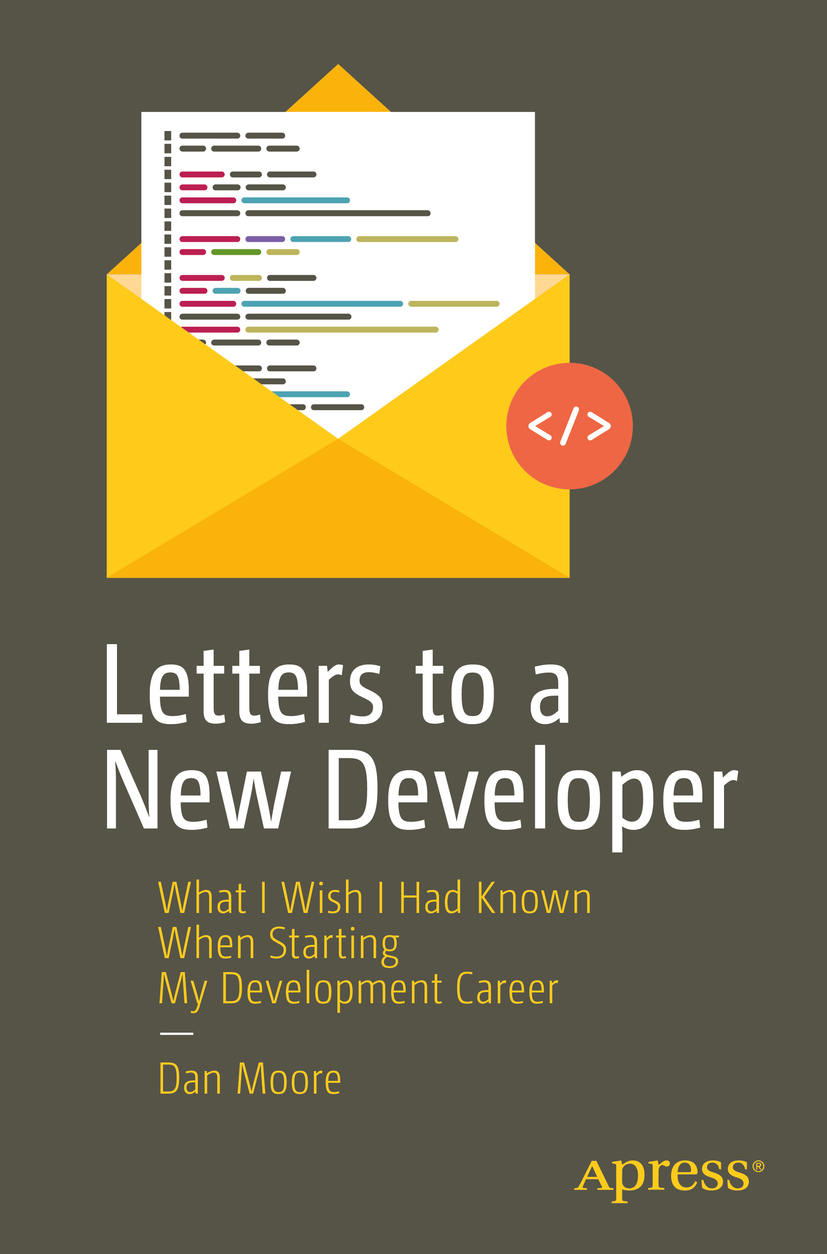

Any source code or other supplementary material referenced by the author in this book is available to readers on GitHub via the books product page, located at www.apress.com/9781484260739 . For more detailed information, please visit http://www.apress.com/source-code .
To my ladies:
Pam, Charlotte, and Lucy
This book is full of lessons Ive learned. I wrote it to help new developers like you. When I started developing software, I had many assumptions. Over the last two decades of working in companies both big and small, alongside tens of thousands of employees and as a startup cofounder, I saw how my assumptions were incorrect.
During that time, I also was introduced to specialties and disciplines that I never imagined were part of software development, and my eyes were opened further.
It was not always easy to learn. I made missteps. I was humbled by teammates, managers, and clients. More than once, I had to sit down at the computer and grind.
I wrote this book to share all this with you.
However, this is not a book about a certain technology or a specialized program you might use. Sure, there is an entire chapter about tools a developer should eventually master, but specific technologies are beside the point. If you are looking for a book to help you understand the latest JavaScript framework, microservices architecture, or DevOps platform (or, for the ambitious, all three!), please buy a different book.
This book is, instead, about principles and practices that never go out of style. These were germane two decades ago and will be relevant far into the future. A lot of what Ill cover are called soft skills , but theyre pretty hard to learn. As far as I know, no college or bootcamp offers How to Make Mistakes 101. It was easier for me to learn how to program a computer than how to collaborate with a team. Computers get faster every year, but people change every day. And they matter. Software exists only because humans shape it, need it, and pay for it.
Among other topics, this book includes practices to help you level up as a developer, tools to learn, the right way to ask questions, and the role of community in software development.
Over many years, I have learned what it takes to be a professional software developer. While I think anybody working in software can benefit from this book, I wrote it for three audiences: new developers, people considering software development as a career, and mentors.
You are new to the software development job market . Perhaps you have completed a bootcamp or college degree. You may refer to yourself as an entry-level or junior engineer.
While everyones background and skills growth happens at different speeds, new developers generally have less than five years of professional experience. Many new developers are worried about their abilities, dont feel welcome, and have a difficult time finding that first job.
But as an industry, we need more new developers. There are so many problems with which software can help. Companies want experienced engineers, but all the senior developers I know started out as new developers. A senior engineer is just a new engineer seasoned with gaffes, education, and time.
For new developers, this book will help you avoid missteps Ive made. It also introduces you to disciplines beyond coding critical to success. While programming is crucial for any software product or service, there is much more required to deliver an application.
If youre not sure if software engineering is right for you, this book offers perspectives on how to succeed.
Ive intentionally kept the barriers to the layperson low with limited technical jargon. Only a few technologies are discussed, and those sections can be skipped. If you are thinking about becoming a developer, Id recommend buying this book and a book about programming.
Giving a computer commands that it can execute is an important skill for any software developer. But software engineering is so much more. You must know what to build, how to work with your team, and how to maintain your systems.
If you are mentoring a new developer, this book can serve as a discussion guide. Because each chapter has letters approaching a theme from different angles, you and your mentee will find it useful for focused mentoring sessions.
As an experienced developer, youll of course bring your own insights and experience to each topic, from your debugging process to the value of an online community for continuous learning.
And, of course, you may have had a different experience than what I share. Such contrasts are a jumping-off point to discuss the diversity available in a software development career.
This book is a conversation.
Each chapter consists of letters around a theme, written from me to you. This format allows me to approach a topic from different perspectives. At the same time, each letter is easy to read in a single sitting. I read before bed and wanted to write a software book that would neither keep you up nor put you to sleep.
To give the reader a broader view, I have invited other engineers and professionals, from recent bootcamp graduates to CTOs, to contribute their viewpoints. Youll see their letters interspersed among mine, signed by the author.
Font size:
Interval:
Bookmark:
Similar books «Letters to a New Developer: What I Wish I Had Known When Starting My Development Career»
Look at similar books to Letters to a New Developer: What I Wish I Had Known When Starting My Development Career. We have selected literature similar in name and meaning in the hope of providing readers with more options to find new, interesting, not yet read works.
Discussion, reviews of the book Letters to a New Developer: What I Wish I Had Known When Starting My Development Career and just readers' own opinions. Leave your comments, write what you think about the work, its meaning or the main characters. Specify what exactly you liked and what you didn't like, and why you think so.

